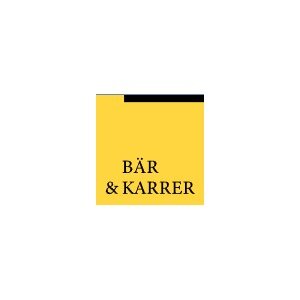Best Natural Resources Lawyers in Switzerland
Share your needs with us, get contacted by law firms.
Free. Takes 2 min.
Or refine your search by selecting a city:
List of the best lawyers in Switzerland
About Natural Resources Law in Switzerland
The natural resources sector in Switzerland is characterized by its unique blend of environmental responsibility and resource management. The country is renowned for its pristine natural landscapes, including diverse ecosystems and water resources. Natural resources law in Switzerland encompasses the regulation of land, water, minerals, forests, and acts as a critical framework for both preserving the environment and enabling sustainable economic activities.
Why You May Need a Lawyer
Individuals and businesses might require legal advice in the realm of natural resources for various reasons. Common situations include negotiating land use rights, obtaining permits for resource extraction or use, ensuring compliance with environmental laws, or resolving disputes regarding property boundaries. Lawyers can also assist with navigating the complex regulatory landscape associated with resource management, including understanding public and private sector obligations.
Local Laws Overview
Switzerland's approach to natural resources is influenced by its federal structure, meaning that both national and cantonal laws apply. Key areas include:
- Water Rights: Governed by cantonal law, which regulates water use and preservation within each region.
- Forestry: The Swiss Forest Law seeks to protect and ensure the sustainable use of forest resources.
- Mining and Mineral Extraction: Involves a complex framework of permits and obligations to protect the environment while allowing mineral resource utilization.
- Land Use Planning: Federal and cantonal systems work together to control land use to balance development and conservation.
- Environmental Protection: Switzerland adheres to stringent environmental laws to safeguard biodiversity and promote sustainable practices.
Frequently Asked Questions
What permits are needed for water usage in Switzerland?
Permits for water usage are typically required at the cantonal level, ensuring compliance with local water management and environmental regulations.
How can I find out about mineral exploration opportunities?
Information on mineral exploration can be obtained from local cantonal offices responsible for natural resources, which provide guidelines for exploration permits and operations.
Is it possible to dispute land use decisions?
Yes, individuals and organizations can appeal land use decisions. Legal assistance may be needed to navigate the appeal process and present a compelling case.
What are the penalties for non-compliance with environmental laws?
Penalties can range from fines to operational restrictions and are enforced to ensure protection of natural resources and compliance with Swiss environmental standards.
How does Switzerland balance resource utilization and environmental protection?
Switzerland employs a collaborative approach combining federal, cantonal, and local efforts, emphasizing sustainable development and conservation.
Are renewable resources regulated differently?
Renewable resources such as solar or wind power are subject to specific regulations encouraging sustainable development while ensuring environmental protection.
What role do local communities play in resource management?
Local communities often participate in consultations and decision-making processes to align resource management with public interest and environmental preservation.
Can foreign companies engage in resource extraction?
Foreign companies can invest and operate in Switzerland, but must comply with local laws focusing on sustainable practices and environmental responsibility.
What protections exist for biodiversity in resource management?
Swiss laws enforce regulations prioritizing biodiversity, ensuring natural habitats are preserved even amidst resource extraction activities.
How can I access information about regional natural resource laws?
Regional natural resource laws can be accessed through cantonal government offices or legal portals offering comprehensive law overviews.
Additional Resources
Those seeking more information on natural resources in Switzerland can look to several key resources:
- Federal Office for the Environment: Provides guidance on environmental protection and sustainable resource management.
- Cantonal Natural Resource Departments: Offer localized information and support for compliance and resource use.
- Swiss Mining and Natural Resources Association: An industry body providing insights and support for stakeholders.
Next Steps
If you require legal assistance regarding natural resources in Switzerland, consider the following steps:
- Identify your specific needs, whether they are related to water rights, mineral extraction, or land use.
- Contact a lawyer specializing in natural resources to discuss your situation and receive personalized advice.
- Utilize online resources or legal directories to find qualified professionals experienced in Swiss natural resources law.
- Prepare all relevant documentation that outlines your case, including permits, contracts, and any correspondence with regulatory bodies.
- Schedule a consultation to outline legal strategies and explore the legal options available to your circumstances.
Lawzana helps you find the best lawyers and law firms in Switzerland through a curated and pre-screened list of qualified legal professionals. Our platform offers rankings and detailed profiles of attorneys and law firms, allowing you to compare based on practice areas, including Natural Resources, experience, and client feedback.
Each profile includes a description of the firm's areas of practice, client reviews, team members and partners, year of establishment, spoken languages, office locations, contact information, social media presence, and any published articles or resources. Most firms on our platform speak English and are experienced in both local and international legal matters.
Get a quote from top-rated law firms in Switzerland — quickly, securely, and without unnecessary hassle.
Disclaimer:
The information provided on this page is for general informational purposes only and does not constitute legal advice. While we strive to ensure the accuracy and relevance of the content, legal information may change over time, and interpretations of the law can vary. You should always consult with a qualified legal professional for advice specific to your situation.
We disclaim all liability for actions taken or not taken based on the content of this page. If you believe any information is incorrect or outdated, please contact us, and we will review and update it where appropriate.
Browse natural resources law firms by city in Switzerland
Refine your search by selecting a city.














